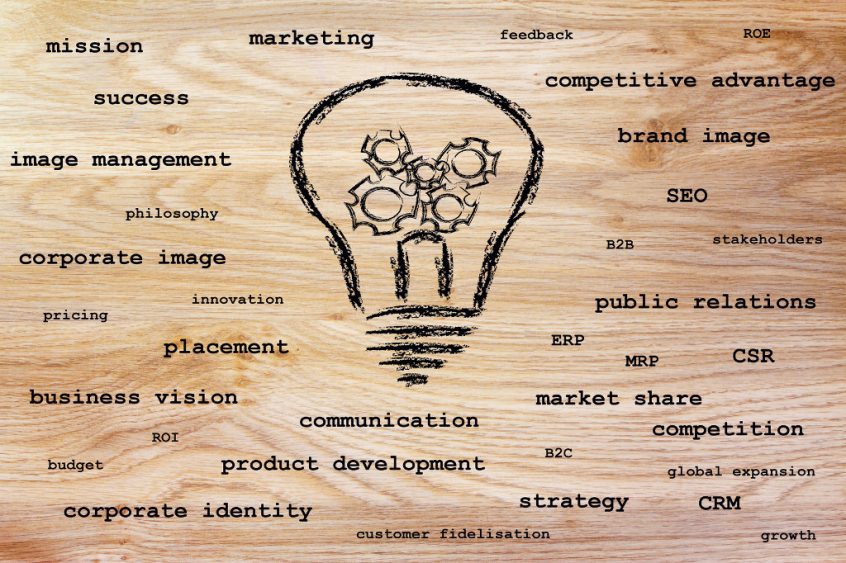Share this Post
Enterprise Resource Planning (ERP) and its related software are all about integrating the various channels and systems which make up an enterprise. The goal is a unified and holistic repository of information and resources that can empower workers and management to streamline their operations, optimise essential tasks and processes, and identify the trends, opportunities, and constraints involved in making business decisions.
An ERP system has to integrate and streamline diverse business processes which may be highly complex in themselves – and this complexity can work its way into the management system. Small wonder then, that ERP implementation has gained a reputation for being something of a nightmare.
There are several challenges to meet, but there are ways to overcome them.
Knowing What To Integrate
Depending on the individual circumstances of your organisation, it’s unlikely that all your existing systems and processes can (or even should) be integrated, to achieve the maximum benefit.
Establishing which components of the enterprise need streamlining and merging together is a process that should be undertaken at the planning stage – and it’s one that needs to take into account the known and presumed capabilities of the ERP solution you’re considering, as well as their perceived value and/or cost to the business.
Deciding On Your Objectives
The initial planning stage of an ERP implementation is also the time in which definitive and measurable goals for the system need to be established. These objectives need not be carved in stone, as changing market, operational, and other conditions may dictate that circumstances change over the course of implementation.
For this reason there also needs to be some mechanism in place for amending or adding to ERP goals.
Achieving Buy-in
The adoption of an ERP system and the installation and running of ERP software will likely constitute a radical shift in the way things are done in the organisation – and gaining acceptance of these changes is an essential requirement across the board. Resistance to change is one of the biggest obstacles faced in many ERP deployments, especially in businesses where ingrained practices and established procedures have met with some success over the years.
Buy-in at senior management level is a must, and the formation of an implementation team with representation from all levels of the enterprise is definitely a good idea.
Achieving acceptance of the new system may be facilitated by inviting the participation of your staff/user base at the planning stages. This may take the form of a needs analysis, interactive feedback channels, and establishing lines of communication to keep the workforce informed of what changes to expect, and the time-frame in which they’re projected to occur.
Choosing A Vendor
With literally hundreds of ERP solutions on the market, as proprietary or as free & open source software – to say nothing of custom-made applications and the various “as a Service” options in the cloud – choosing a system can be a daunting task. Market research can help in determining the size, scope, and type of system required to meet your particular business objectives, and there are some general considerations which may be taken into account.
While in-house or bespoke systems may be an option for larger corporations having access to greater financial resources and infrastructure, a hosted cloud-based solution may be more appropriate (and affordable) for smaller scale enterprises. There are also consultative and research facilities or services available online which specialise in recommendations for enterprise software.
Knowing The Capabilities Of The Technology
Technical issues to resolve include knowing the full range of features and functionality (which may run into the thousands) offered by the system that you choose. It’s also important to know what the system can’t do – and what you’ll need to do to your existing hardware and software installations to make it work properly.
In practical terms, this may require you to upgrade hardware or software, or to purchase new equipment (servers, network hardware, etc.) and make provisions for the increased demands on network and internet bandwidth.
This may also be the time to make the decision to subscribe to a hosted ERP system with infrastructure in the cloud, or to balance on-site and cloud-based resources in a hybrid deployment.
Re-validating Your Data
It’s possible that the shift to a new software platform will require your existing (legacy) data archives to be cleaned up or reformatted before they can be ported to the new system. This process may take weeks or even months, depending on the quality and amount of legacy data which may be resident on servers and/or remote sites within your organisation. So it’s essential to budget the time, finances and human resources necessary to complete this validation.
Training Your Users
Having involved stakeholders at all levels of the enterprise in the planning stages of the project, you’ll need to follow this up by providing engaging and job-relevant training programmes and materials for your end users. These should include a reference archive of Help files and tutorials.
You’ll need to allow for retraining and refresher courses as (for example) new hires come into the fold, or upgrades in the software and developments in technology or your industry demand the acquisition of new skills.
Phasing The Transition
Historically, the most successful ERP implementations are rolled out in stages – and may take a considerable amount of time, which has to be budgeted for. Provision should also be made for testing at each phase (data compatibility issues, bandwidth and data transmission, etc.).
At the user level, it’s a good idea to provide clear channels of communication (and a clear path to help and technical support) for feedback and the resolution of issues.
Share this Post


